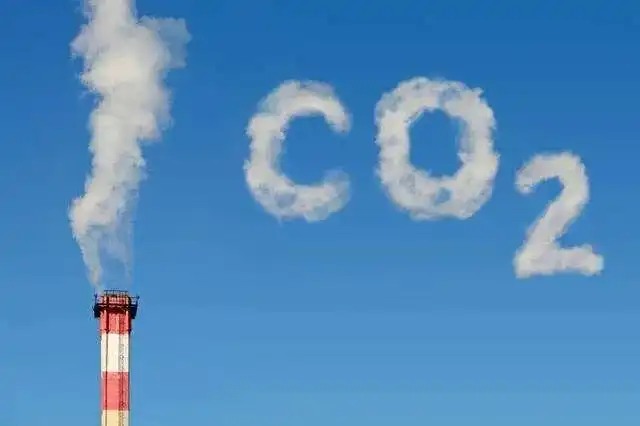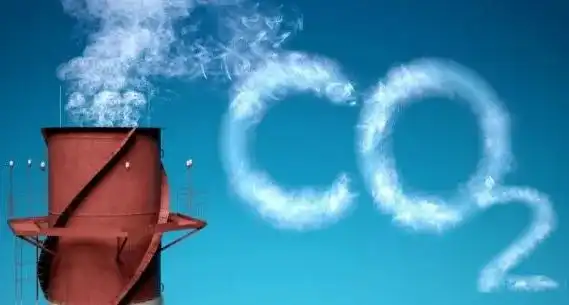Accelerate the construction of a carbon peak and carbon neutrality standard system in the industrial sector
Accelerating the construction of a carbon peak and carbon neutrality standard system in the industrial sector is not only an important guarantee to ensure that China achieves its carbon peak goal as scheduled, but also an intrinsic requirement for achieving high-level scientific and technological self-reliance and accelerating the high-quality development of the industry.

Recently, the Ministry of Industry and Information Technology issued the "Guidelines for the Construction of Carbon Peak and Carbon Neutralization Standard System in the Industrial Sector"(hereinafter referred to as the "Construction Guidelines"), proposing to initially establish a carbon peak and carbon neutrality standard system in the industrial sector by 2025, and formulate more than 200 carbon peaks urgently needed standards; by 2030, a relatively complete carbon peak and carbon neutrality standard system in the industrial sector will be formed.
Standardization is the technical support and important guarantee to support the realization of the "double carbon" goal. "At present, China's manufacturing structure is biased, its energy structure is biased towards coal, and its energy efficiency is low have not been fundamentally changed. Industrial carbon emissions are still one of the main sources of China's carbon emissions. Green barriers to international trade, represented by the European Union's implementation of the Carbon Border Regulation Mechanism (CBAM), are accelerating, increasing the cost and difficulty of the green and low-carbon transformation of China and China's manufacturing industry." The 14th Five-Year Plan period is a critical period for China to achieve its carbon peak goal. As one of the country's important basic systems, the standard plays a fundamental and leading role in the process of achieving the carbon peak and carbon neutrality goal. Accelerating the construction of a carbon peak and carbon neutrality standard system in the industrial sector is not only an important guarantee to ensure that China achieves its carbon peak goal as scheduled, but also an intrinsic requirement for achieving high-level scientific and technological self-reliance and accelerating the high-quality development of the industry." Tu Yuandong, director of the Energy Resources Research Institute of the Strategic and Development Research Center of Jiangsu Province, said.
High complexity in standard formulation
Referring to the 200 carbon peak standards in the industrial field, Zhang Longqiang, Secretary of the Party Committee and President of the Metallurgical Industry Information Standards Research Institute, believes that:"the industrial field not only involves many industries, but also has different characteristics of production process, energy consumption and carbon emissions in each industry. moreover, specific and clear standards are needed to guide the accounting, monitoring, reporting, verification and reduction technology of carbon emissions. These standards are very important to guide industrial enterprises to reduce carbon emissions, improve energy efficiency, and promote the development and application of green and low-carbon technologies. Specifically, the standards that need to be established urgently in the industrial field mainly include basic general purpose, greenhouse gas emission accounting and verification, low-carbon technology and equipment, etc., to provide technical support for carbon assessment and carbon emission reduction in the industrial field. For example, the basic general standards include some common terminology definitions, data quality, identification marks, report statements and information disclosure and other basic standards; emission accounting verification standards can clearly unify carbon emissions accounting methods and verification requirements of various industries and fields, and ensure the accuracy and comparability of data. Through the formulation and implementation of these standards, we can systematically promote carbon emission reduction in the industrial sector, and provide a strong foundation and technical support for achieving carbon peaks and carbon neutralization goals. "

"Carbon peak and carbon neutrality is a systematic project. In recent years, China has achieved remarkable results in standardization work in areas such as energy conservation and efficiency improvement, carbon emission management, and clean energy utilization. However, compared with the urgent need to promote carbon peak and carbon neutrality, the industrial sector has achieved carbon peak and carbon neutrality. The systematization, scientificity, and internationalization level of the standard system need to be improved, and the connection between standards and policies and the latest trends in industrial development needs to be strengthened." Tu Yuandong said,"At present, in order to effectively adapt to the new rules of international trade and improve the level of green and low-carbon development of the industry, we should focus on key carbon emission industries such as steel, building materials, non-ferrous metals, petrochemicals, and chemicals, as well as carbon reduction and process control of key products, accelerate the formulation of urgently needed standards in terms of carbon reduction, coordinated carbon reduction and other aspects, and provide rules and guidance for the 'double carbon' market-oriented mechanism."
Lay the foundation in the early stage
Can the goal be achieved on time? Zhang Longqiang said that standardization in the industrial field has gone through a process of gradual establishment and improvement over the years. "Take the steel industry, which has the largest carbon emissions in the industrial sector, for example, a large amount of standardization work has been carried out in green manufacturing, energy conservation and efficiency improvement, and clean production, and a corresponding standard system has been formed. A series of standard system documents previously issued, including the "National Standardization Development Outline","Implementation Plan for Establishing and Improving the Carbon Peak Carbon Neutralization Standard Measurement System" and "Guidelines for the Construction of Carbon Peak Carbon Neutralization Standard System", are all for standardization in the industrial field. Lay a solid foundation for work. These documents cover many aspects such as green development, energy efficiency improvement, cleaner production, and carbon emission control. They provide clear top-level design and standard guidance for the industrial sector and promote green development and low-carbon transformation in the industrial sector."
Local governments have also begun preparations. Tu Yuandong pointed out that in recent years, Jiangsu has continued to promote the standardization process in the industrial field. At the end of last year, the Office of the Joint Conference on Standardization Work of Jiangsu Province issued the "Implementation Plan for Jiangsu Province to Establish and Improve the Carbon Peak Carbon Neutralization Standard System", which clarified that by 2025, it will lead and participate in the drafting of 50 international standards, national standards and industry standards, continue to promote the innovative development of standards, and give full play to the basic and leading role of standards. In 2023 alone, Jiangsu will draft and issue 6 landmarks and 4 group logos. "Jiangsu is continuing to carry out the formulation and revision of standards in the industrial field. Recently, the Provincial Market Supervision and Administration Bureau issued the" Notice on the 2024 Guidelines for the Establishment of Local Standards in Jiangsu Province "to solicit landmark project approval from the whole society."
"The proposal and promotion of the 'double carbon' goal provides a strong policy guarantee for the formulation and implementation of relevant standards. Faced with environmental pressure and market demand, more and more industrial enterprises are taking the initiative to seek low-carbon development paths, which provides a good industry foundation and motivation for standard formulation. At the same time, with the continuous advancement and innovation of relevant technologies, more possibilities and means are provided to achieve carbon emission reduction, which contributes to the scientific and practical nature of standard formulation, thereby promoting the development and application of technology." Zhang Longqiang said.
Focus on overall consideration
Although the target time is tight and the task is heavy, standard formulation cannot be sloppy. Tu Yuandong said that the formulation of carbon peak and carbon neutrality standards in the industrial sector should focus on the effective connection with the existing industrial energy conservation and comprehensive utilization standard system, the green manufacturing standard system, and the effective connection between the upper, lower and lower reaches of the industrial chain. At the same time, based on the principle of "urgent use comes first", we will speed up the formulation of urgently needed standards and revise existing standards in a timely manner. It is also necessary to promote the integration of low-carbon new technologies and new processes into relevant standards, and empower greening with digitalization and intelligence. In addition, we must actively refer to the foundation and development trends of international standardization work in addressing climate change and other aspects to improve the internationalization level of relevant standards. "Energy is an important material foundation and driving force for economic and social development, and runs through all aspects of the construction of a carbon peak and carbon neutrality standard system in the industrial field. The construction of a carbon peak and carbon neutrality standard system in the industrial field will also promote the revision and improvement of some existing standards in the energy field, improve clean fuel substitution capabilities and the level of renewable energy utilization, and promote technological progress in efficient use of energy."
张龙强则建议科学实用与动态调整并行。“The formulation of standards needs to be based on scientific research and technical practice to ensure that standards are scientific, reasonable and easy to operate, and also fully consider the specific conditions of each industry. 。随着技术进步和政策调整,标准应具有一定的灵活性和适应性,以便及时进行更新和优化。此外,参考和借鉴国际上先进的标准和做法,有助于提高中国工业产品和服务的国际竞争力,同时加强中国在‘双碳’领域的国际话语权。”

original title:The construction of the "double carbon" standard system in the industrial field is accelerated
